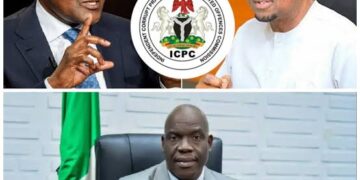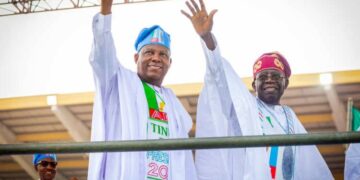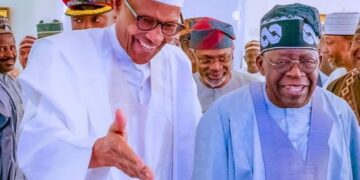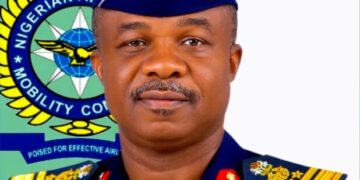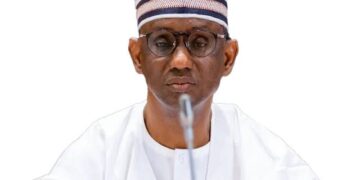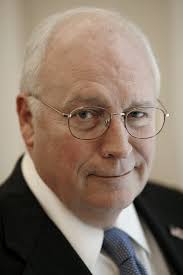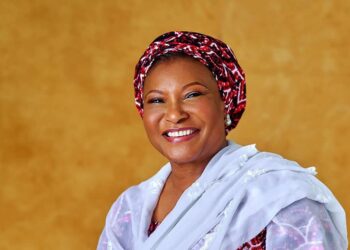By Emmanuel Nnadozie Onwubiko
Hate him or like him, erstwhile Vice President of the United States of America Mr. Dick Cheney, was a man of global impacts. His sojourn on the planet earth is remarkable and eventful and not even mortality can perish the large volumes of milestones that he etched on the sands of time whilst he towered so tall as a political maverick in the World’s greatest democracy: USA.
The Guardian of London saw him thus: “Dick Cheney, the divisive US vice-president under George W Bush who helped lead the country into a disastrous invasion of Iraq, died on Monday, his family has said. He was 84.
Cheney at various times held the roles of member of Congress, White House chief of staff and secretary of defense, but it was as one of the country’s most powerful vice-presidents that he had the biggest impact, wielding great influence over the less experienced Bush.
Cheney was in office on 11 September 2001 during the terrorist attacks on New York and Washington. While Bush was hurried to safety, Cheney worked with the defense secretary, Donald Rumsfeld, to assume policy control. Troops were soon in Afghanistan, fighting the Taliban and hunting al-Qaida.
But Cheney’s place in history will be dominated by the decision to invade Iraq. He had been defense secretary during the first Gulf war against Saddam Hussein, in 1990 and 1991, but now Cheney and Bush’s public rationale for war was that the Iraqi dictator was linked to al-Qaida and thus 9/11, and possessed weapons of mass destruction. By March 2003, when US and coalition forces invaded, no proof had been found for either charge, and both were soon proved false.
Although Cheney sought international cooperation, he also thought, he later wrote, that the Bush administration “had an obligation to do whatever it took to defend America”.
The death toll was high. According to the Watson School of International and Public Affairs at Brown University, since 2001 “at least 800,000 people have been killed by direct war violence in Iraq, Afghanistan, Syria, Yemen and Pakistan”.
Dick Cheney has entered the historical book of records as one of the few leaders whose quality Times in government made global impacts and can’t be easily wished away or forgotten. Dick Cheney to me reigned as a philosopher king and true to what Plato the philosopher said, Dick Cheney has left a massive rapporteur of political milestones as aforementioned so much so that his name will remain evergreen.
What does Plato mean by that comcept of a philosopher king which this writer has ascribed fittingly to Dick Cheney? philosopher king, idea according to which the best form of government is that in which philosophers rule. The ideal of a philosopher king was born in Plato’s dialogue Republic as part of the vision of a just city. It was influential in the Roman Empire and was revived in European political thought in the age of absolutist monarchs. It has also been more loosely influential in modern political movements claiming an infallible ruling elite.
In Plato’s Republic the leading character, Socrates, proposes the design of an ideal city as a model for how to order the individual soul. Such a just city will require specialized military “guards,” divided subsequently into two groups—rulers who will be “guards” in the sense of guardians, dedicated to what is good for the city rather than for themselves, and soldiers who will be their “auxiliaries.” Already at this stage of the Republic it is stressed that the guardians must be virtuous and selfless, living simply and communally as do soldiers in their camps, and Socrates proposes that even wives and children should be in common.
At the outset of Book V, Socrates is challenged by his interlocutors to explain this last proposal. In response, Socrates expounds three controversial claims, which he acknowledges will expose him to ridicule. The first is that the guardians should include qualified women as well as men; thus, the group that will become known as “philosopher kings” will also include “philosopher queens.” The second claim is that these ruling men and women should mate and reproduce on the city’s orders, raising their children communally to consider all guardians as parents rather than attach themselves to a private family household. Those children, together with those of the artisan class, will be tested, and only the most virtuous and capable will become rulers. Thus, the group to become known as “philosopher kings” will be reproduced by merit rather than simply by birth. Finally, Socrates declares that these rulers must in fact be philosophers:
Until philosophers rule as kings or those who are now called kings and leading men genuinely and adequately philosophize, that is, until political power and philosophy entirely coincide…cities will have no rest from evils…there can be no happiness, either public or private, in any other city.
Socrates predicts that this claim will elicit even more ridicule and contempt from his Athenian contemporaries than will equality for women rulers or communality of sex and children. Many Athenians saw philosophers as perpetual adolescents, skulking in corners and muttering about the meaning of life, rather than taking an adult part in the battle for power and success in the city. On this view, philosophers are the last people who should or would want to rule. The Republic turns this claim upside down, arguing that it is precisely the fact that philosophers are the last people who would want to rule that qualifies them to do so. Only those who do not wish for political power can be trusted with it. Incidentally, Dick Cheney was a giant in the Republican party of the USA.
My conclusion is that Dick Cheney won’t go away just by the mere historical fact that bodily, he has evaporated to the great world beyond. Beyond the mortality of his body lies the immortality of his gigantic contributions to leadership and politics in the World. Generations unborn will read about him and will marvel at how far he went to write his name in gold.
*EMMANUEL NNADOZIE ONWUBIKO is the founder of the HUMAN RIGHTS WRITERS ASSOCIATION OF NIGERIA and was NATIONAL COMMISSIONER OF THE NATIONAL HUMAN RIGHTS COMMISSION OF NIGERIA.



